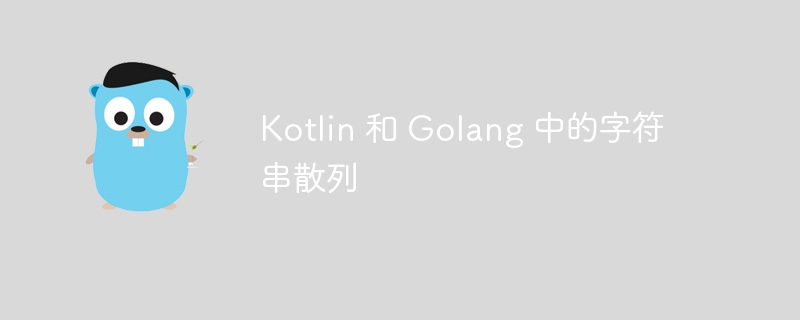

In service a, I have a string that is hashed like this:
fun string.tohash(): long {
var hashcode = this.hashcode().tolong()
if (hashcode < 0l) {
hashcode *= -1
}
return hashcode
}I want to replicate this code in service b written in golang, so for the same word I get the exact same hash. As far as I understand from the kotlin documentation, the applied hash returns a 64-bit integer. So in go I do this:
func hash(s string) int64 {
h := fnv.new64()
h.write([]byte(s))
v := h.sum64()
return int64(v)
}But I don't get the same value when doing unit testing. I get:
func test_hash(t *testing.t) {
tests := []struct {
input string
output int64
}{
{input: "papafritas", output: 1079370635},
}
for _, test := range tests {
got := hash(test.input)
assert.equal(t, test.output, got)
}
}result:
7841672725449611742
Did I do something wrong?
Java and Kotlin use different hash functions than Go.
Possible options are:
The above is the detailed content of String hashing in Kotlin and Golang. For more information, please follow other related articles on the PHP Chinese website!




